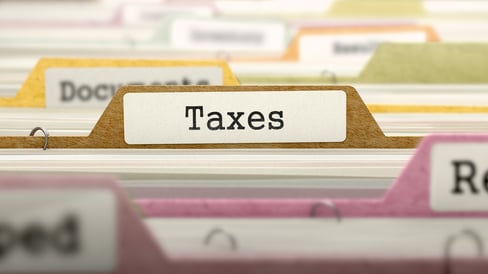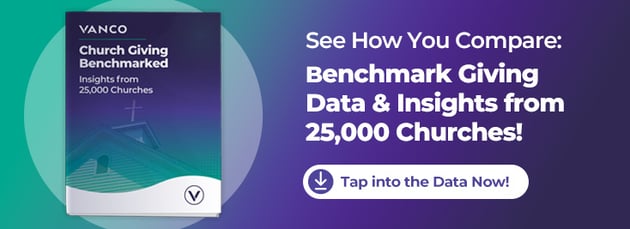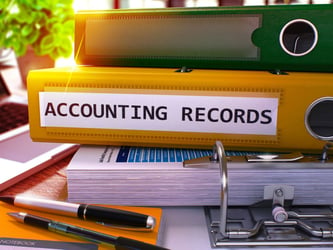Like any organization, churches must manage important administrative and record keeping processes, including how to keep church financial records and how long to keep church financial records. If you run a church, this is an important part of ensuring the church meets state and federal legal requirements.
A 2020 National Congregational study showed that there were about 380,000 churches in the U.S., across multiple religions and denominations, and small and large church platforms. For many of these churches, efficient and accurate record-keeping will be an important part of their viability going forward.
So, what records should a church keep? Financial records can feel overwhelming, but there are a few guidelines you can follow to make this task easier.
Keep reading to learn more about managing church financial records.
Table of Contents
- What Records Should a Church Keep?
- Are Churches Required to Provide Financial Statements?
- How Long to Keep Church Financial Records
- How to Keep Church Financial Records
- How to Store Church Records
- Make Church Record Keeping Simple While Boosting Donations

What Records Should a Church Keep?
Financial record organization is very important when you are running a church. These records are used for tax-related purposes at the beginning of each year.
These records also come in handy when the church needs financial assistance. For instance, if you want to get a loan, you may need certain documentation.
There are also instances where you need these records for the IRS. Overall, it is safer to retain any documentation that has value.
Keep in mind that every state has different record retention laws. This is something you should confirm for your state so you understand what you need to keep.
In most cases, it is better to keep more than you need rather than get rid of the wrong records too soon. Here are some examples of church records you need to save every year:
- Church Finances
- Historical Records
- Congregation Attendance
- Legal Records
- Church Staff Rosters
- Volunteer Rosters
- In-Person Donations
- Online Donations
These are examples of documents that are important to running a church. These are broad terms that usually cover a handful of different financial documents.
You will need to analyze what documentation your church has. Your documentation must be organized and stored somewhere where you can access it easily.
Are Churches Required to Provide Financial Statements?
 Churches are often labeled as nonprofit organizations. Despite this, most churches turn profits every year from donations.
Churches are often labeled as nonprofit organizations. Despite this, most churches turn profits every year from donations.
Your church does not need to file annual tax information with the IRS; however, some churches may need to file other types of taxes like Form W-2. Or they may need to file Form 1099 or 940 each tax season.
Some churches may receive income from church businesses or companies. This money ends up becoming actual income, not a type of donation.
Churches may also need to file tax information if they employ people with salaries. If your church staff are employees or contractors, this information must be recorded.
State requirements can also vary for these records. Stay up-to-date on these policies for legal documentation.
How Long to Keep Church Financial Records

Are you wondering how long to keep church financial records? This is a common question that causes some confusion.
Every church has records about donations and church expenses. You must retain some of these documents for a while before you dispose of them.
The rules for how long you need to keep these records vary according to where your church is located. You need to research your state and apply that knowledge to federal requirements for nonprofit organizations.
The basic timelines to follow usually include keeping records permanently or for 10 years. But you may also need to keep them for seven or two years depending on the situation.
Do not discard documents even if the church shuts down or relocates. You will still need to keep these records for a certain amount of time.
10-Year Records
The policy around 10-year records is not too complicated. Churches simply need to retain insurance policies for at least 10 years.
It is a good idea to have several copies of these records just to be safe. It is also recommended that churches create digital records in case something happens to physical copies.
7-Year Records
If you are wondering how to keep church financial records, there are a variety of documents you need to hold onto for seven years.
Some of these documents include bank statements, canceled checks and bank reconciliations. You also need to keep tax return worksheets and supporting documents.
You need to hold onto IRS forms and payroll tax records. This includes payroll registers and W-4 forms as well as payroll deductions.
Keep track of investment records and any contracts you have. These records also include employee expense reports and personal records after employment separation.
Annual audit records and worksheets, insurance letters, individual giving records and accounts payable records are also important.
You should also save receipts and statements from your taxes. Save tax bills for seven years.
These are all documents that the IRS may require later if you experience a tax-related issue.
2-Year Records
If you have any time cards or timesheets, you need to retain them for two years. You also need to hold onto individual offering envelopes.
Although these are records you can discard after two years, experts recommend holding onto documents for a year or two longer than necessary.
It is always best to err on the side of caution when dealing with financial records.
Permanent Records
Certain church records need to be kept permanently, including corporate records and meeting minutes.
You need to hold onto audit reports and annual financial statements. This includes submitted tax returns and annual corporate filings or returns.
You also need to keep property records and tax exemption documents. These are very important legal documents that you may need at some point.
All the documentation that you need to keep may be requested by the IRS. Your bank may also need these documents if you ever need financial help.
There are many instances where you may need to prove your church finances and where the money is going. That is why this documentation is so important.
For permanent records, it is a good idea to have digital copies in case the originals are lost.
How to Keep Church Financial Records 
Now that you know how to keep church financial records, how do you make this easier? The good news is that there are several ways you can make this task more manageable. It is important to have a financial records organization when you have so many documents.
How you choose to do this depends on the size of your church and your staff. Here are some examples of ways churches can streamline this process.
Record Policy
Every church should create a policy for record retention. You need to follow federal and state requirements for these records.
You can create a guideline that has a step-by-step process. This should include what documentation to keep and how long to keep it, as well as where these documents will be stored and how they will later be disposed of.
Anyone who manages church documentation should understand these guidelines. You also need to make sure that your documentation is kept safe because it is private information.
Your record retention policy should include how to store documents so you can access them later. This ensures you are keeping everything you need and discarding what you don't.
Use Online Software
One of the best church accounting options is online software. It allows churches to use software to manage donations and church giving rather than doing it manually.
This software is becoming more popular with churches that have tithes. Church members can easily donate by using their phones at the touch of a button.
Not only is this convenient for everyone, it also makes documentation simpler. Receipts from donations will be documented and can be kept for later.
This applies to online giving and mobile apps as well as text-to-give software. These options make church financial records much easier to manage.
Software is an important tool to consider because every nonprofit must keep track of its donations. This can be difficult if you have members paying in person and in cash.
Retention Schedule
Your church needs to have a retention schedule in place. This will work hand-in-hand with your record retention policy regarding documentation.
You can use a retention schedule to understand when records need to be circulated. You can review and audit your records annually as necessary.
This process can be very helpful when you have multiple people managing church records. Everyone will know what to do and when to do it.
This can help keep you from holding onto records that you no longer need. It's good to keep documentation, but keeping too much can become overwhelming.
Make sure you prioritize the most important documents. Discard records once you no longer need them to make room for new ones.
Have a Secretary
Most churches choose to have a church secretary they can rely on. The secretary often has the responsibility of accounting for church records.
This can help to simplify the process and reduce confusion. The more people you have working on church records, the more room there is for error.
Having one person in charge of everything can give you peace of mind. The church secretary can also delegate jobs if there is too much work to do.
Have Record Meetings
Every church should have business meetings in place. Meetings are important to keep everything running efficiently throughout the year.
You should also have record meetings to discuss the church's financial records. This is not just about the church finances, but about all required legal documentation.
These meetings can help ensure this information is clear in everyone’s minds. Only those who handle financial records need to attend these meetings.
If you have a secretary, this can be the perfect time for them to update everyone. This keeps everyone on the same page and helps them understand the church's accounting processes.
How to Store Church Records
 Churches should have a strong focus on record storage. You can do this in a variety of ways depending on how your church runs.
Churches should have a strong focus on record storage. You can do this in a variety of ways depending on how your church runs.
The majority of churches still focus heavily on physical records. This is often easier because many church documents are already in physical form.
You may have an area of your church where you keep these documents in labeled boxes. This can be very useful and has worked for most churches for many years.
But it is also a good idea to have digital records made. If you are using online giving software, you already have a variety of digital records.
Digital records are more secure and you can view them on different devices. It is a good idea to make digital records of your physical records just to be safe.
Physical records could be destroyed if something were to happen to your church building. That is why having digital backups can be a great preventative measure.
Both options are good when it comes to organization. You will need to make sure that everything's organized in an easy-to-understand way.
Records can easily get out of hand and become overwhelming if your they aren’t labeled. Physical records need labeling just as digital files do.
Make Church Record-Keeping Simple While Boosting Donations
See how you can join tens of thousands of churches in growing donations by an average of 26%. And see how much time you can save on record keeping with Vanco’s online giving software. Take just a few minutes to watch this on-demand webinar to learn more.
Get the Free eBook to Improve Church Stewardship
Keeping the lights on, the doors open and missions funded isn't what inspired most church leaders to pick their career, but it is key to the health of the church and the congregation. Discover how to become a master of church stewardship with our ultimate guide.












